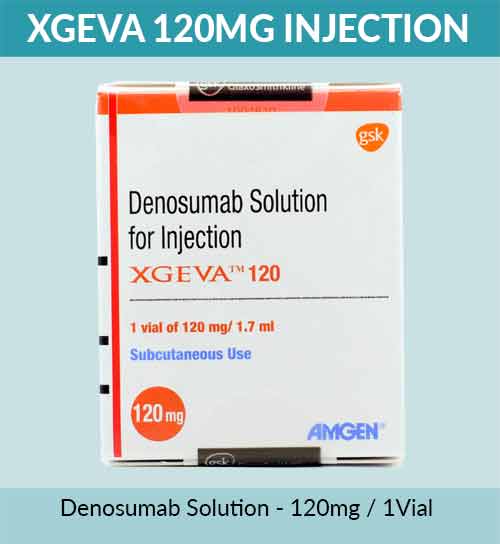Denosumab
Denosumab is a medication used in the treatment of osteoporosis, bone metastases, and certain other bone-related conditions. It belongs to a class of drugs known as monoclonal antibodies.
Denosumab works by inhibiting a protein called RANK ligand, which plays a role in the formation, function, and survival of osteoclasts (cells that break down bone tissue). By blocking RANK ligand, denosumab helps to prevent excessive bone loss and reduces the risk of fractures.
The medication is typically administered as an injection under the skin (subcutaneous). The dosage and frequency of administration are determined by the healthcare provider based on the individual’s condition and treatment goals.
Common side effects of denosumab may include pain at the injection site, back pain, musculoskeletal pain, and increased risk of infections. More serious side effects, such as jaw problems or low calcium levels, can occur but are less common. Regular monitoring of calcium levels and dental health may be recommended during treatment.
Denosumab should only be used under the guidance and prescription of a qualified healthcare professional experienced in the treatment of bone-related conditions. It may interact with other medications, so it is important to inform the healthcare provider about all medications being taken, including over-the-counter drugs and supplements.
In summary, denosumab is a medication used in the treatment of osteoporosis and bone-related conditions. It inhibits RANK ligand to prevent excessive bone loss. Regular monitoring and adherence to healthcare provider instructions are important during denosumab treatment.
Note – The brand names and product descriptions used on this site are for informational purposes only and are the property of their respective owners.

